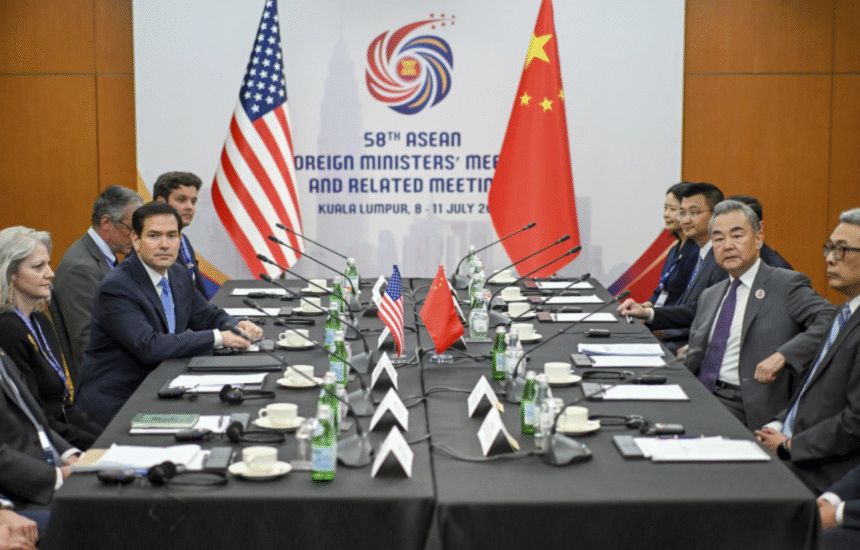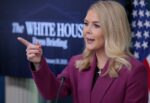U.S. Secretary of State Marco Rubio met with his Chinese counterpart, Wang Yi, on Friday in Kuala Lumpur, Malaysia, as the world’s two leading economic powers continue to clash over competing agendas in Asia, particularly under the strain of renewed tariff policies introduced by U.S. President Donald Trump.
This high-level meeting took place during Rubio’s first official trip to Asia since assuming office. He is attending the East Asia Summit and the ASEAN Regional Forum alongside top diplomats from Japan, China, South Korea, Russia, Australia, India, the European Union, and Southeast Asian nations.
Rubio’s talks with Wang come at a delicate time, as tensions have surged due to Washington’s moves to reimpose steep tariffs on Chinese goods. Earlier this week, Beijing warned the U.S. against the renewed trade barriers and signaled potential retaliation against countries aligning with Washington’s efforts to exclude China from global supply chains, according to Reuters.
Rubio’s visit is part of the Biden administration’s broader strategy to reassert its commitment to the Indo-Pacific region, shifting focus away from the Middle East and Europe, which have dominated recent foreign policy discussions. However, this strategy faces new challenges following the announcement of sweeping tariffs by the U.S. earlier this week: 25% on goods from Japan, South Korea, and Malaysia; 32% on Indonesian exports; 36% on Thailand and Cambodia; and 40% on Myanmar and Laos.
Analysts suggest the underlying goal of Rubio’s visit is to reinforce the narrative that the U.S. remains a more reliable and strategic partner than China.
In addition to meeting with Wang, Secretary Rubio also held bilateral talks on Friday with the foreign ministers of Thailand, Cambodia, and Indonesia. A day earlier, he had assured Southeast Asian counterparts that the Indo-Pacific remains a cornerstone of U.S. foreign policy.






